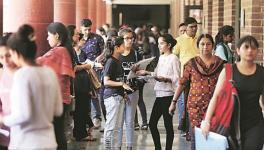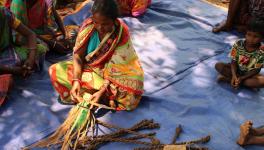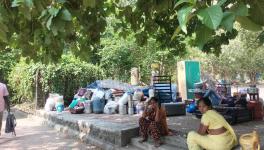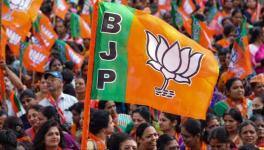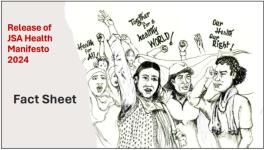Public Health Groups Condemn Tadvi’s ‘Harassment’, Demand Large-scale Inquiry
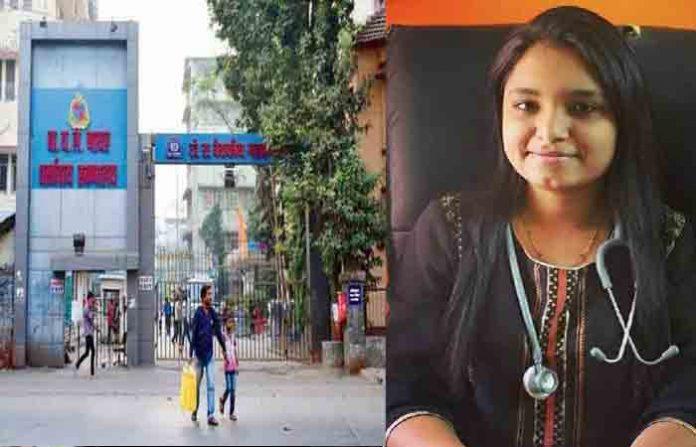
Image Courtesy: Kractivist.org
Following alleged suicide of Dr Payal Tadvi – a Tribal post-graduate medical student from Mumbai – on May 22, health networks Jan Swasthya Abhiyan (JSA) and Medico Friend Circle (MFC) have demanded immediate action against “the caste oppression, humiliation by upper caste senior doctors, which forced Dr. Payal to [commit] suicide”.
Tadvi, who was pursuing an MD from T N Medical College of the BYL Nair Hospital, had alleged harassment and ragging by three senior doctors in her department – Dr Hema Ahuja, Dr Bhakti Mahere and Dr Ankita Khandelwal. The trio had allegedly targeted Tadvi for her Adivasi background, and had allegedly also used “casteist” slurs to harass Tadvi. According to reports, the 26-year-old gynaecology student’s mother, too, had filed a written complaint with the hospital administration regarding the alleged harassment, but no action was taken.
The three accused doctors now remain absconding, and have been suspended by the Maharashtra Association of Resident Doctors (MARD).
The joint statement by JSA and MFC read: “The rampant ingrained casteism and impunity in educational institutions must be urgently recognised and stopped. She was continuously harassed and experienced gender and caste-ist abuse and discrimination by three senior doctors, which led her to take the extreme step of ending her life.”
Tadvi, who hailed from Jalgaon, belonged to the Tadvi Bhil community – a Scheduled Tribe (ST).
The statement added: “[We] strongly condemn the institutional murder of Dr. Payal Tadvi, a young medical doctor from an adivasi community who broke through barriers of social discrimination to become the first doctor in her family and the first woman from her community to pursue post-graduation.”
The health networks demand a large-scale public inquiry in various medical colleges and health care institutions, given the “widespread and institutionalised forms of caste oppression among the medical professionals”.
Full text of the statement:
We, members of Jan Swasthya Abhiyan (JSA) and Medico Friend Circle (MFC) –national level networks working on public health strongly condemn the institutional murder of Dr. Payal Tadvi, a young medical doctor from an adivasi community who broke through barriers of social discrimination to become the first doctor in her family and the first woman from her community to pursue post-graduation. We demand urgent action against the caste oppression, humiliation by upper caste senior doctors, which forced Dr. Payal to suicide. The rampant ingrained casteism and impunity in educational institutions must be urgently recognised and stopped.
She was continuously harassed and experienced gender and caste-ist abuse and discrimination by three senior doctors, which led her to take the extreme step of ending her life in the hostel of Bombay Municipal Corporation (BMC)-run Topiwala National Medical College (TNMC) and BYL Nair Charitable Hospital, Mumbai.
Dr. Payal Tadvi, 26 years old, from Jalgaon district, belongs to the Tadvi Bhil community, which is a scheduled tribe. She was a 2nd year resident doctor in the Obstetrics and Gynaecology department of TNMC, and had graduated MBBS from Government Medical College, Miraj. She had joined for post-graduation in Gynaecology in TNMC on 1st May 2018. Since the time that she joined, Dr Payal was harassed by the doctors, two of whom she had to initially share a room with. They continued to discriminate and threaten her, disallowed her to perform operations or conduct deliveries. Despite multiple complaints about the harassment to the Head of the Department and Head of the Unit made by Dr. Payal and by her parents, no action was taken and the discrimination and abuse continued.
Even though the Maharashtra Association of Resident Doctors (MARD) has suspended the three doctors, it has not acknowledged the gravity of the situation that led to her death, by ignoring any mention of discrimination or caste in their press release dated ?This and other emerging responses have attempted to highlight the death as a consequence of “ragging” completely disregarding the deep-rooted caste biased discrimination and abuse. A case was finally registered against the three doctors under the SC/ST Atrocities Act, Anti-ragging Act, and IT Act after Dr. Payal’s death.
Anil Kumar Meena[1], Rohith Vemula, Payal Tadvi are probably only some of the institutional murders due to caste-ism that are widely known; evidence that several dalit and adivasi students have been forced to drop out of higher education systems, due to discrimination and abuse is not unknown, and yet it continues to sustain and worsen, denying each of them the right to equality, to live life with dignity.
Adivasis, Dalits, Muslims, and other marginalised communities continue to be poorly represented in the medical community, like in all other professional communities due to sustained discrimination. Those who manage to overcome the hurdles of institutional discrimination, are forced to experience harassment and abuse by powerful casteist medical fraternity and leadership in institutions, which fail to acknowledge, and act to uphold accountability. This, despite Constitutional mandates and Human Rights Standards reaffirming the right to affirmative action to ensure equity and justice.
We strongly condemn all forms of caste-ism, discrimination and violation of human rights within diverse institutions. We demand that speedy justice should be delivered to Dr. Payal and the bereaved family. The accused should be arrested and the law must take its course. The institutional authorities should be held accountable and strict action taken against them.
Moreover, given the widespread and institutionalized forms of caste oppression among medical professionals, we demand that a large scale public inquiry be conducted in various medical colleges and health care institutions to examine this issue in depth. This public inquiry should involve diverse stakeholders, including organisations representing students from dalit and tribal communities, and representatives from the communities. The findings from the inquiry should form the basis for reorientation and sensitisation of health institutions, medical professionals at all levels, along with guiding the development of effective complaint and redressal systems to deal with caste based harassment in all forms in the medical profession and practice.
The rising majoritarian discourse and practice today, particularly demand the need for urgent and pro-active steps in educational institutions against casteism and discrimination and the instilling of an understanding of the continued need for affirmative action that is founded on human rights and constitutional guarantees.
Jan Swasthya Abhiyan
Medico Friend Circle
28 May 2019
Also read: Tribal Post-Graduate Medical Student Harassed, Commits Suicide
Get the latest reports & analysis with people's perspective on Protests, movements & deep analytical videos, discussions of the current affairs in your Telegram app. Subscribe to NewsClick's Telegram channel & get Real-Time updates on stories, as they get published on our website.











